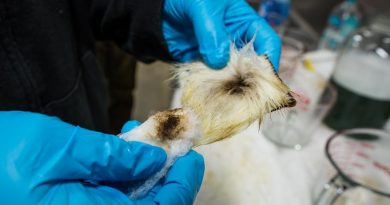Studying Bugs to Track Climate Change
Teams from the University of Toronto, McGill University and the University of Prince Edward will travel to several locations — including Lake Hazen, Nunavut; Goose Bay, N.L.; and Churchill, Man. — to replicate a study done 60 years ago.
The results can then be compared to fit another piece into the puzzle of what impact climate change is having on the ecosystem in Northern Canada.
“We know that some strange insects are moving to the north,” UPEI biologist Donna Giberson told CBC News on Tuesday.
“We don’t know how well they’re becoming established and we don’t know how quickly they’re moving. What we’re hoping is that this is going to give us an idea of the things that could be affected the quickest with climate change.”
All insects, all places
UPEI students Jana Aker and Christine Roussel are preparing for the trip by sorting through the thousands of insects in the university’s bug lab, practising how to identify insects without a microscope.
Aker said the group will be looking for all kinds of bugs in many places.
“We’ll get chest waders on and hop in the stream and do some sampling with different types of netting and scooping things up into the nets,” she said.
“Then we’re going to be setting different traps and checking those every couple of days for what insects we find.”
The project is funded by the Natural Sciences and Engineering Research Council. The researchers arrive in June and go home in August.



